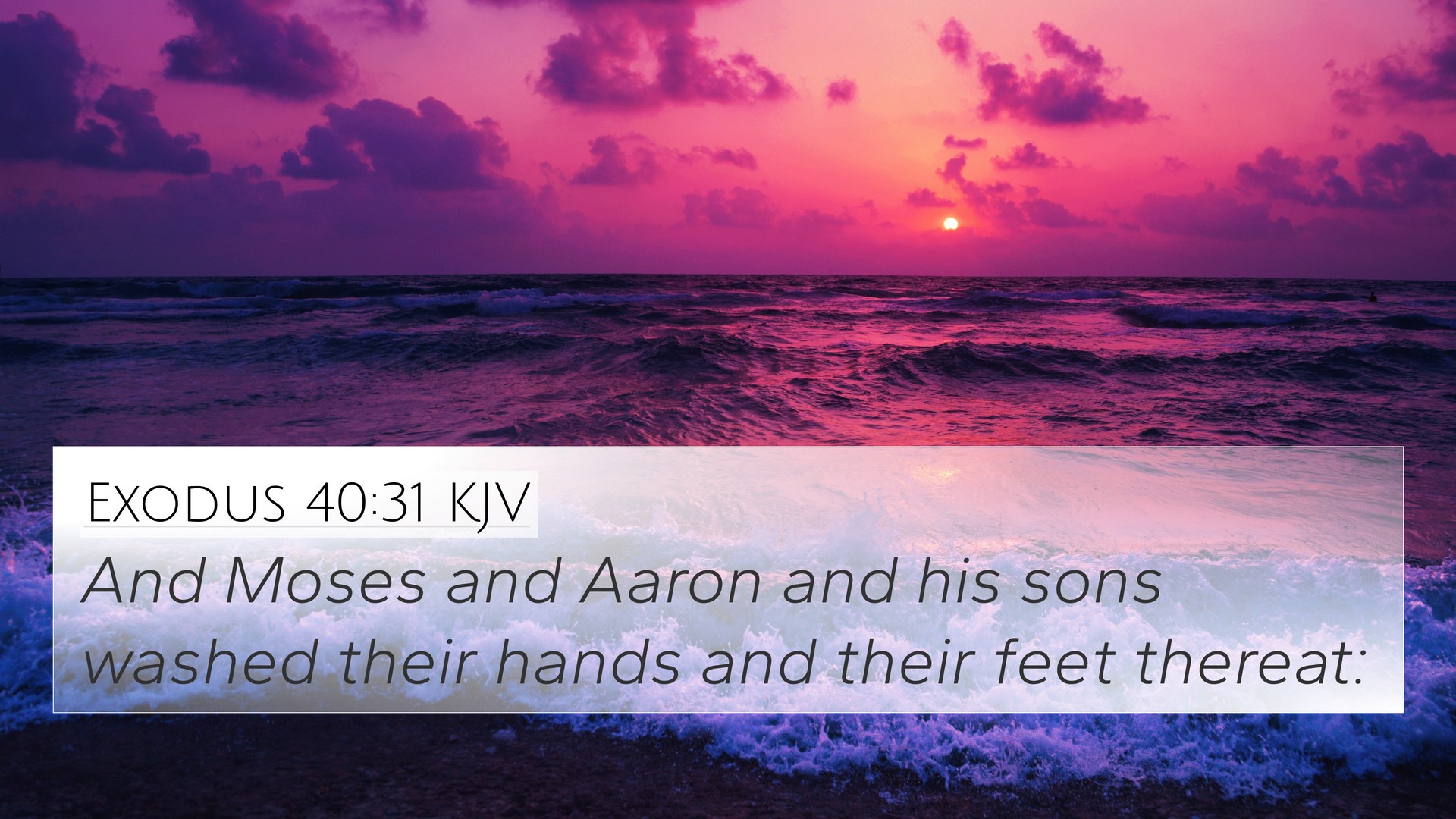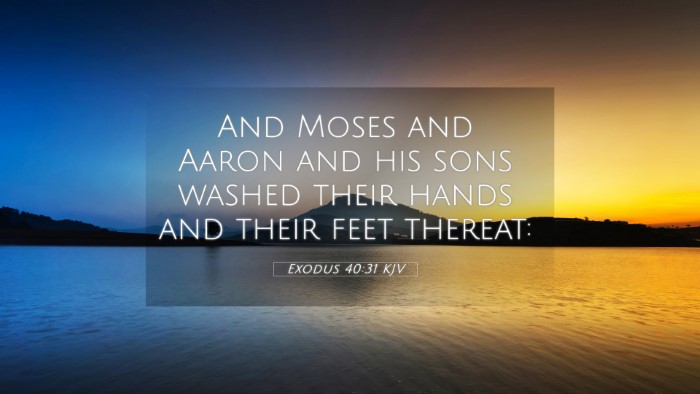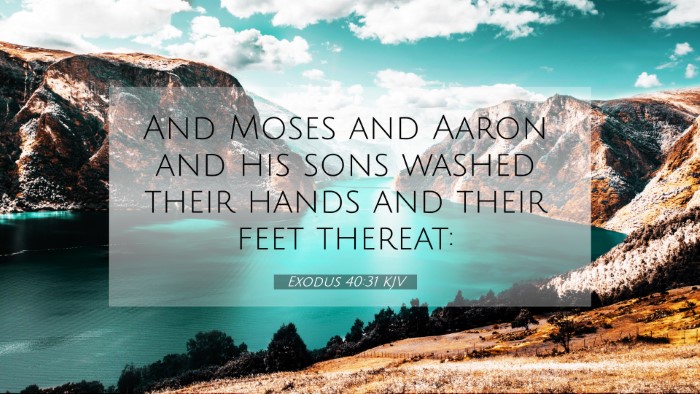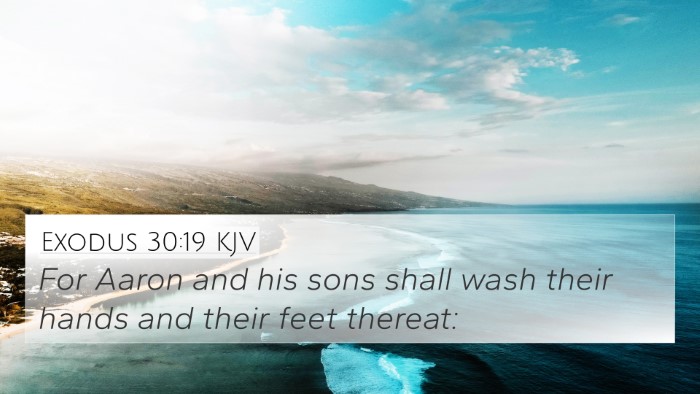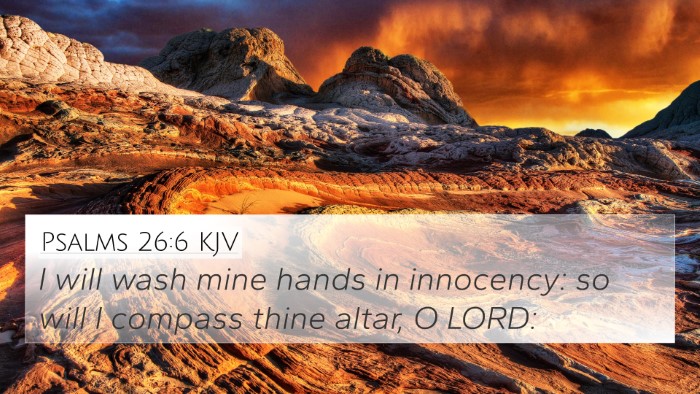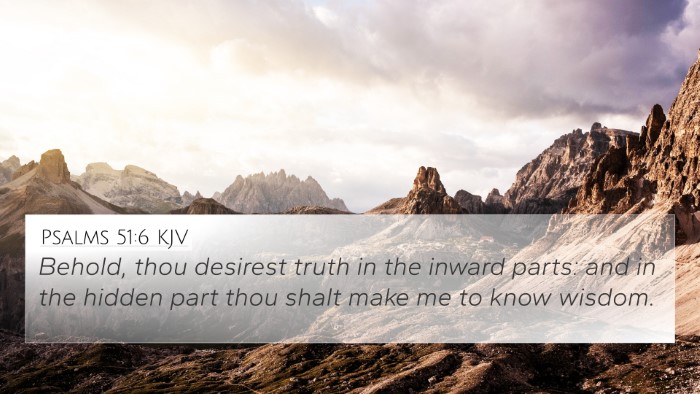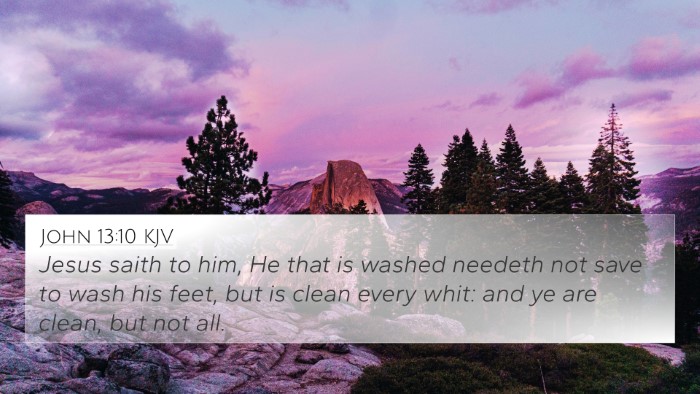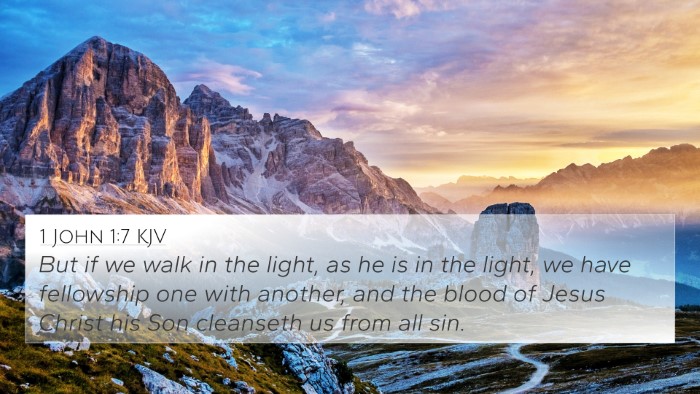Understanding Exodus 40:31
Exodus 40:31 states, "And Moses and Aaron and his sons washed their hands and their feet there:" This verse is part of the concluding chapter in the book of Exodus, which describes the setting up of the Tabernacle and the ceremonial washings that were an integral part of the priests’ consecration.
Summary of Commentary Insights
The relevance of this verse extends beyond mere physical purification. It symbolizes spiritual readiness to engage in the service of God. Commentators like Matthew Henry, Albert Barnes, and Adam Clarke highlight the multifaceted meaning behind the act of washing, which represents preparation both externally and internally for approaching God.
Key Themes in Exodus 40:31
- Preparation for Service: The act of washing signifies the importance of being spiritually cleansed before undertaking sacred duties.
- Symbolism of Washing: This ritualistic washing serves as a precursor to entering God's presence, emphasizing purity and sanctification.
- Covenantal Relationship: It illustrates humanity's accountability to maintain a pure relationship with God, a recurring theme throughout the scriptures.
Connections Between Bible Verses
This verse offers numerous cross-references that deepen its understanding:
- Psalm 24:3-4: Asks, "Who shall ascend into the hill of the Lord? or who shall stand in his holy place? he that hath clean hands, and a pure heart."
- Hebrews 10:22: Encourages believers to draw near with a sincere heart in full assurance of faith, having their hearts sprinkled to cleanse them from a guilty conscience.
- John 13:10: Jesus speaking about Peter’s washing says that one who is bathed needs only to wash his feet to be completely clean, emphasizing continuous purification.
- 1 Peter 2:5: Describes believers as “living stones” being built into a spiritual house, implying the necessity of being cleansed for service.
- Leviticus 16:4: Discusses the consecration of the High Priest, who was to bathe before dressed in holy garments, paralleling the washing in Exodus 40.
- Isaiah 52:11: Calls upon those who bear the vessels of the Lord to cleanse themselves, connecting to the holiness required for service.
- Romans 12:1: Paul urges believers to offer themselves as living sacrifices, indicating that purity and holiness are essential for worship.
Comparative Bible Verse Analysis
The thematic connections between Exodus 40:31 and the aforementioned verses highlight an overarching principle of purity required for those who serve God. This prompt for reflection encourages believers to understand the importance of inward and outward cleanliness as they engage in worship and ministry.
Tools for Bible Cross-Referencing
To explore these themes further, one can utilize various tools for Bible cross-referencing:
- Bible Concordance: A helpful resource for finding related scriptures based on themes or keywords.
- Bible Cross-Reference Guide: Such guides often provide lists of cross-references that clarify biblical contexts and concepts.
- Cross-Reference Bible Study: Engaging in this method deepens one's understanding of scripture connections.
Cross-Referencing Bible Study Methods
Using a systematic approach to cross-referencing allows one to identify relationships between different biblical themes, leading to a richer interpretation of God's word.
Conclusion
In conclusion, Exodus 40:31 serves not only as a historical account of Moses and Aaron's preparation but also as a theological reminder of the necessity for purification in approaching God. By cross-referencing this verse with others, believers can derive deeper insights into their own spiritual preparation and the importance of maintaining a clean heart and hands in their service to God.
